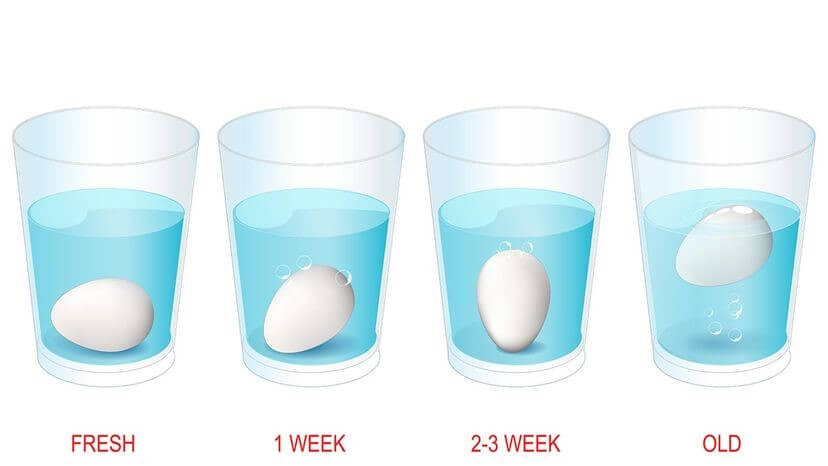
How To Tell If Eggs Are Bad
The price of fresh eggs has skyrocketed. So it pays to know how to tell if eggs are bad.
By Jeremy Glass | How Stuff Works
Do Fresh Eggs Go Bad?
Yes, while there are many risks to eating bad eggs, the main risk is a salmonella contamination, which can cause diarrhea, vomiting and fever. Which is why it’s important to know the signs and how to tell if eggs are bad.
Whether they’re fried, scrambled, poached or baked, eggs (and bacon) are the king of breakfast food. There’s very little you can’t do with eggs. Packed full of healthy cholesterol (that would be HDL cholesterol), a fresh egg contains around 78 calories, 6 grams of protein, and is a good source of vitamin D and choline.
But one thing about raw eggs that can be tough is determining the egg’s freshness. Using fresh eggs is essential when cooking, and while it may not be as easy to spot a contaminated egg as say, bad chicken, there are a few different ways you can use to tell if eggs are bad.
How to Tell If an Egg Has Gone Bad

- Check the sell by date: This one may seem like a no-brainer, but checking the expiration date on the egg cartons is the first step to tell if eggs are bad.
- Do a visual inspection: What do they look like in the egg carton? If any are cracked, you should considered them contaminated and toss them. A slimy or powdery substance on the shell is also a sign of potential contamination. Once you’ve cracked an egg open, look for signs of decay and any pink or green discoloration. Toss if you see either. A hard-boiled egg with a green ring is OK to eat, though.
- Try the float test: In theory, fresh eggs sink and bad eggs float. That’s because, as the float test theory suggests, as an egg ages, a small air pocket inside grows larger, sending older eggs to the surface. While old eggs are still technically safe to eat, badly spoiled eggs are certainly not. To try the float test, just fill a bowl with cold water and add the eggs. If the eggs sink or lay flat, they’re still fresh.
- Perform the sniff test: Bad eggs will have a distinct smell, so crack the egg into a bowl and just give it a whiff. An egg that has gone too far past its expiration date will have a foul odour or sulphuric smell. If it has a rotten egg smell, throw it in the trash.
- Crack it open: Look, you were going to have to crack the thing open at some point, right? A fresh egg will have a bright and plump orange yolk with stiff egg whites. A bad egg will have a yolk that is deflated and spread out.
How to Store Eggs
The best way to store eggs and prevent bacterial growth is to refrigerate them properly. That is typically in the coldest part of your refrigerator. Try to eat them within three to five weeks of purchasing them; any time after that runs the risk of them being bad. But always check the egg carton expiration date to verify the egg’s freshness.
And don’t leave refrigerated eggs out on the counter for more than two hours. They can sweat, which also creates an environment for bacterial growth.
Now That’s Interesting
It is possible to eat eggs to past their expiration date, but it is not recommended. They can be contaminated with harmful bacteria and potentially cause food poisoning.
* * *
READ MORE: Presbyopia Is The Body Aging – 2 Tea Recipes To Nourish The Body And Protect The Eyes
Read more on Healthy Lifestyles: New Soil Study Shows Pesticides ‘Destroying The Very Foundations of Web of Life’
Liked it? Take a second to support Collective Spark.
We’d love to hear from you! If you have a comment about this article or if you have a tip for a future Collective Spark Story please let us know below in the comment section.
